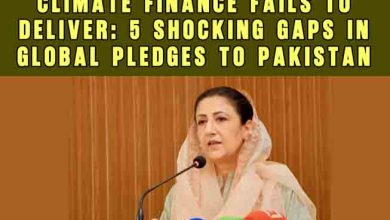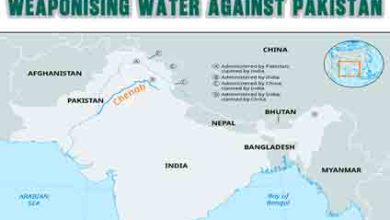Climate Cooperation: Pakistan-US reaffirm to Cement the Green Development Vision
Pakistan-US Climate Cooperation
Islamabad: Pakistan-US governments need to take the climate cooperation forward in continuation of the Minister Sherry’s recent Skype call with US Special Presidential Envoy for Climate, John Kerry, a local news media reported.

Via a telephonic conversation held on 7th July, Federal Minister for Climate Change Senator Sherry Rehman briefed the United States Special Presidential Envoy for Climate, John Kerry about the hazardous impacts of climate change faced by Pakistan.
Federal Minister for Climate Change Senator Sherry Rehman made theses while apprising US Ambassador to Pakistan Donald Armin Blome who paid a courtesy call on the Federal Minister for Climate Change here on Thursday.
To expand the climate cooperation, Minister further said that Pak-US Climate and Environment Group must be made functional before COP 27 so that unfulfilled multilateral pledges can be actualised.
Sherry Rehman expressed her concern over Pakistan’s vulnerability to climate change, and the growing problem of “unprecedented” climate issues like severe heat waves and the ongoing monsoon rains, that have resulted in floods throughout the country.
She said that the floods have resulted in many casualties in both Balochistan and Sindh. “The worst is that the country still needs to brace for another monsoon rain spell in the next month,” she said.
Senator Sherry Rehman congratulated Ambassador Donald Armin Blome on assumption of Office and expressed the desire to continue working together for tackling climate change issues. During the meeting, the conversation also covered various areas of collaboration in the fields of technology, science and education.
Since last 50 years, U.S.-Pakistan partnership and cooperation on energy and the environment has facilitated investments in renewable energy, supported programs in water and climate-smart agriculture sectors, environmental sustainability and human prosperity.
U.S.-Pakistan Climate and Environment Working Group was launched in 2021 to jointly cope with challenges related to Climate Change, to take these talks forwards and strengthen relationships for climate action.
Officials on various forums have expressed that US government’s is committed to contribute and support global climate action at all levels for environmental sustainability.
By Muhammad Arif








